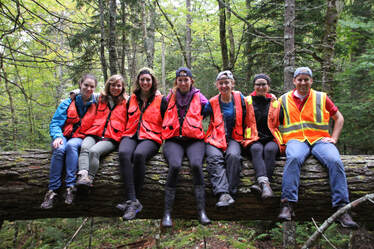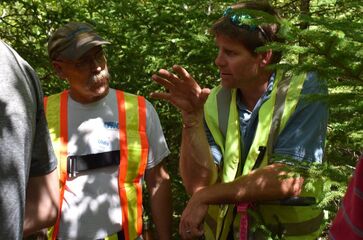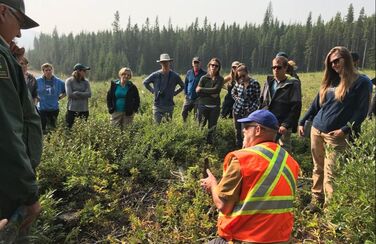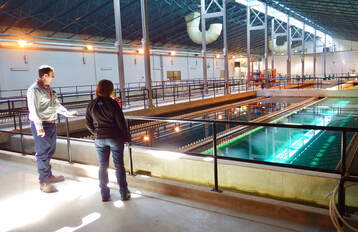The forWater Network uses knowledge mobilization to turn research into impact through partner engagement. Opportunities are identified to increase stakeholder engagement, information sharing, and collaboration throughout the research process. This seeks to ensure that new knowledge can be used when and where it's needed most.
Through building relationships, understanding practitioner needs, and providing decision-makers with relevant information, forWater is helping make positive impacts for drinking water and forest management.
While there are many definitions and conceptualizations of knowledge mobilization (KM), forWater has combined different approaches into four guiding principles: Accessible, Collaborative, Targeted, Actionable, that informs partner engagement within the network.
Through building relationships, understanding practitioner needs, and providing decision-makers with relevant information, forWater is helping make positive impacts for drinking water and forest management.
While there are many definitions and conceptualizations of knowledge mobilization (KM), forWater has combined different approaches into four guiding principles: Accessible, Collaborative, Targeted, Actionable, that informs partner engagement within the network.
|
Accessible
Accessibility ensures more people have access to information about forWater research and outcomes
|
|
Collaborative
Collaboration ensures that multiple perspectives are taken into account throughout the research process
|
|
Targeted
Materials are designed for different audiences to ensure a wider understanding of forWater research
|
|
Actionable
Research outcomes combined with actionable information helps mobilize new knowledge and tools into practice
|






